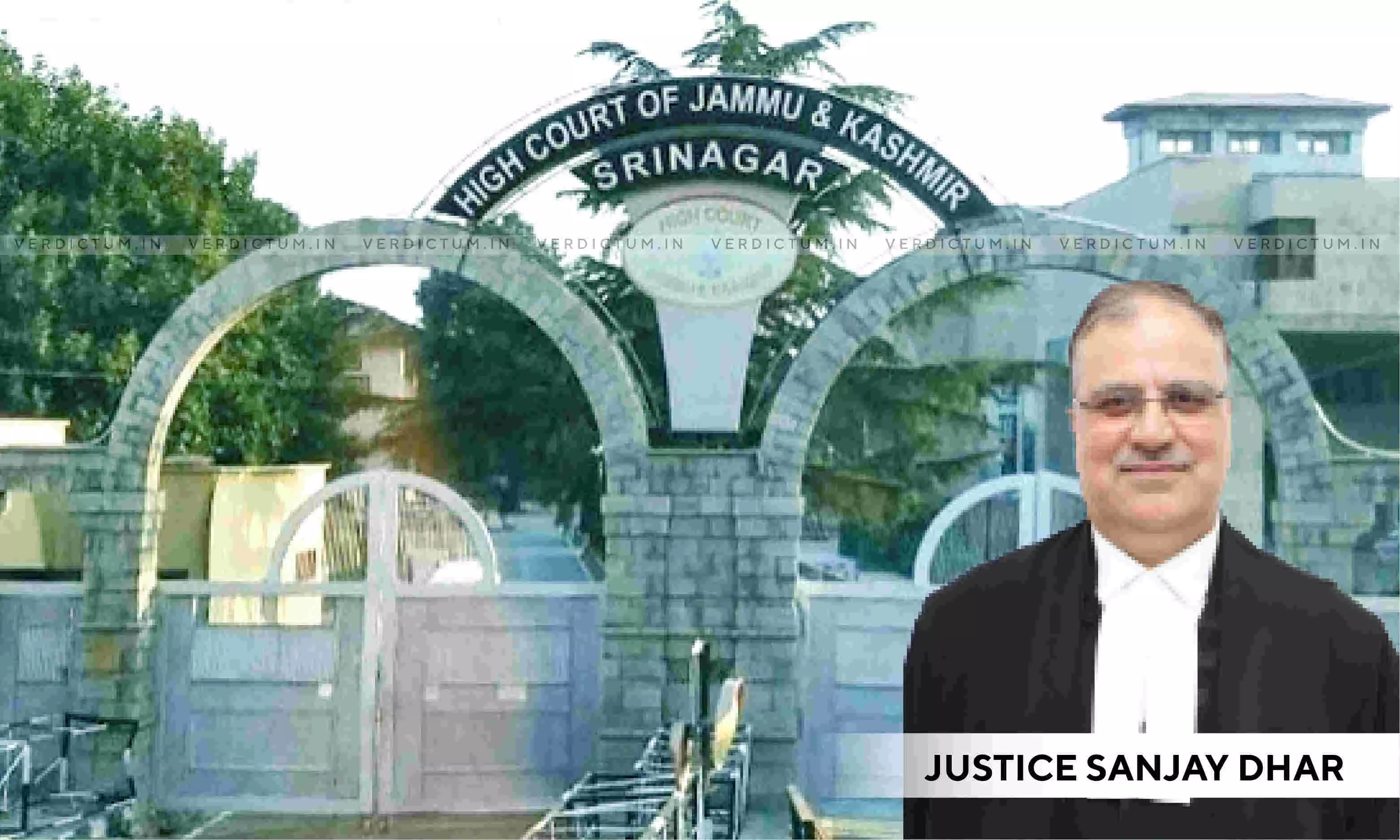
Service Conditions Of Employees Of Society Governed By Byelaws Cannot Be Enforced Through Writ Petition: J&K&L HC
 |
|The Jammu & Kashmir & Ladakh High Court has clarified that even though a writ petition may be maintainable against the Respondent Bank in respect of the matters that fall within the ambit of public law acts, its actions which fall within the sphere of private law, which includes a service dispute between the Bank and its employees, are not amenable to the writ jurisdiction of this Court.
Noting that the Byelaws made by a Cooperative Society registered under the J&K Cooperative Societies Act do not have force of law, and these are of the nature of a contract between the Society and its members, the Bench of Justice Sanjay Dhar observed that "service conditions of the employees of a Society governed by the Byelaws cannot be enforced through a writ petition".
Senior Advocate Jahangir Iqbal Ganai appeared for the Petitioner and Advocate Mahira Bhat appeared for the Respondents.
Going by the background of the case, the Petitioner was appointed as a Clerk in the Respondent Bank, whereafter he was promoted as Assistant Accountant. Later, the Petitioner was placed under suspension and was also charge sheeted by the Respondent. Thereafter, although he was reinstated in terms of writ order, the Respondents treated his period of suspension as on leave whatever kind due to him. Now, even though the Petitioner was promoted retrospectively before attaining the age of superannuation, his retiral benefits were not released because of the pendency of the writ petition. The Petitioner claims that on the assurance given by the Respondents, he withdrew the petition.
Later, the Respondents released leave salary and gratuity in his favor, however, no decision was taken regarding Petitioner’s request for review of the decision taken in respect of treatment of his period of suspension. Hence, the present petition.
From a detailed analysis of the provisions contained in the Jammu and Kashmir Cooperative Societies Act and the Byelaws of the Respondent Bank, the High Court found that that the Respondent Bank is an autonomous body upon which the Government has no pervasive or deep control, regarding running of its affairs.
Taking aid of the decision of Allahabad High Court in the case of Vijay Behari Srivastava vs. U.P. Postal Cooperative Bank Ltd. [(2003) 6 SLR 384], the Bench reiterated that the mere fact that certain provisions of the Act provide that the Government may extend certain aid to the Cooperative Society in one or the other way specified in Section 55 of the Act itself cannot lead to the inference that the Respondent Bank is a public authority.
“The respondent Bank may not be a ‘State’ or ‘an instrumentality of the State’ but it is certainly ‘a person’ or ‘an authority’ within the meaning of Article 226 of the Constitution. The words ‘any person or authority’ used in Article 226 of the Constitution not only includes the statutory authorities and instrumentalities of the State but it also includes ‘any person or authority’ performing public duties. Since the Respondent Bank performs the public functions of banking business, it may be amenable to writ jurisdiction of this Court”, added the Bench.
The Bench observed that so far as the service conditions of the Petitioner, who happened to be an employee of the Respondent Bank, are concerned, the same are governed by the Rules of 2012 which have been adopted by the Respondent Bank in terms of Byelaw 35.
Accordingly, the High Court dismissed the present petition.
Cause Title: Ghulam Rasool Dar v. J&K State Cooperative Bank and Anr.